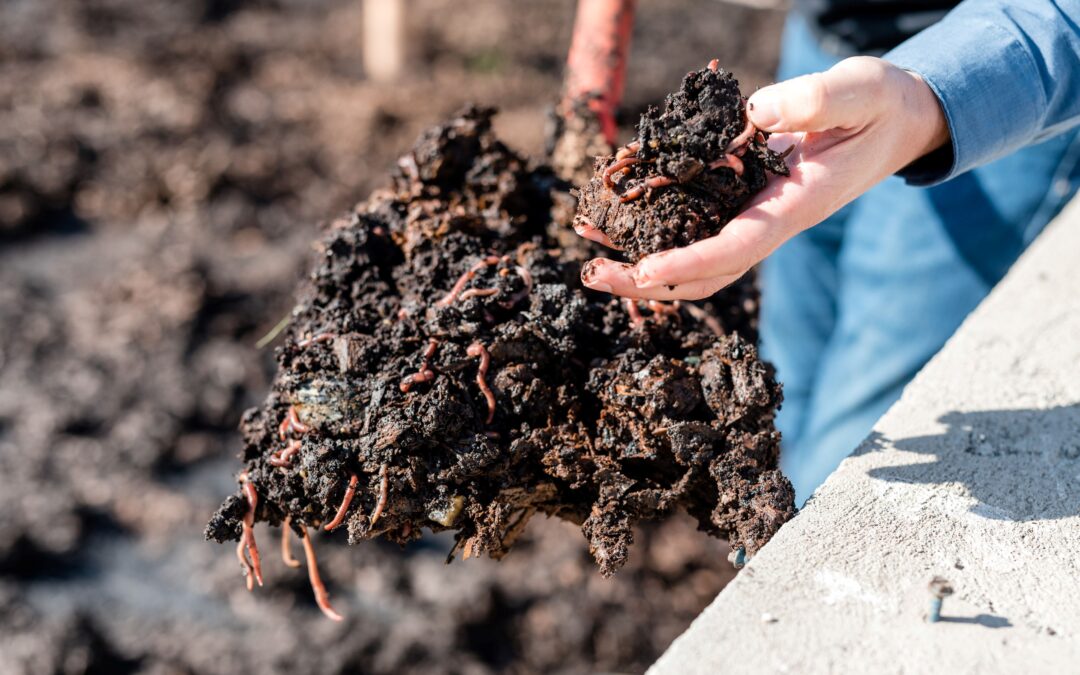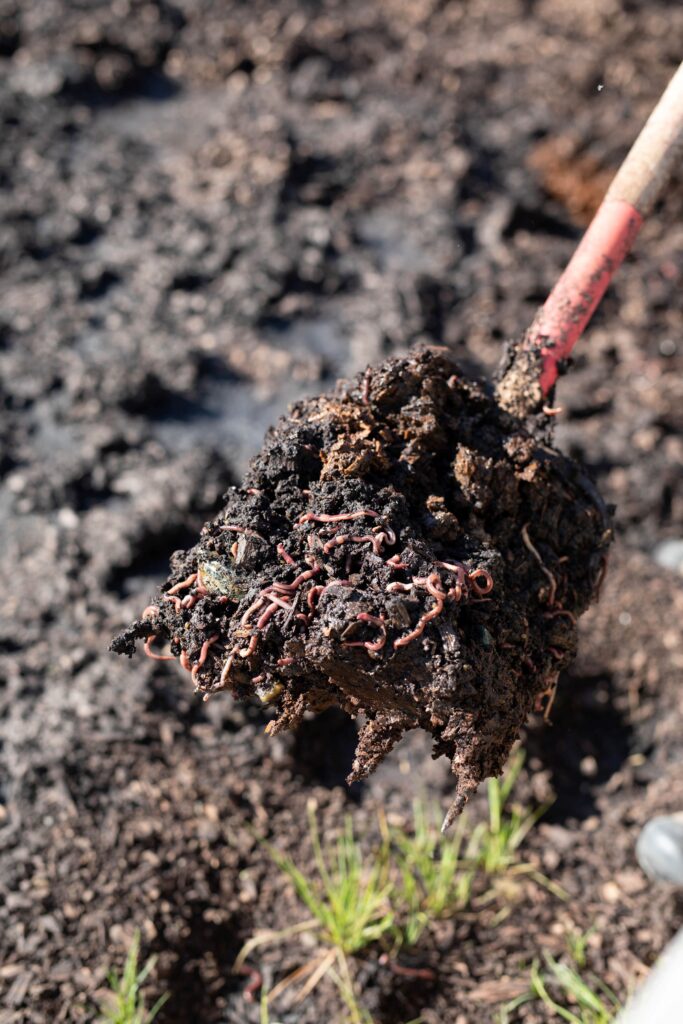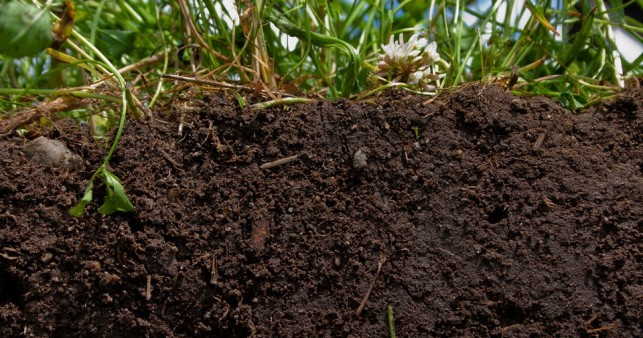MONDAY, FEBRUARY 12, 2024. BY LOTTIE DAWSON.
Soil health is a constant worry for anyone whose business relies upon crop yields to survive. While we benefit from fantastic growing capabilities across the Lodi area and our grapes are of exceptional quality, there are always ways to improve and hone the science behind the perfect growing environment. Many methods are used to help boost soil quality and none are more natural than the work of the earthworm.
Adult earthworm, Lumbricus terrestris. Credit: Jack Kelly Clark.
We’re in an age when new technologies, chemical compounds, and innovative inventions are constantly entering the market and changing how we approach farming, wine growth, and other agricultural activities. However, you can benefit from both the latest innovations and the most natural approaches to crop cultivation.
This article explores the world of earthworms, exploring their role as soil engineers, and nutrient recyclers, and their unique connection to the world of wine production.
Underground Soil Engineers at Work
Earthworms are exceptionally valuable to agriculture. The burrowing that earthworms create allows them to enhance soil aeration and water filtration. One study published in the Soil Biology and Biochemistry Journal found earthworms have a transformative effect on soil structure which can be optimal for plant growth. The intricate burrows they create allow the roots of plants to grow freely, allowing for healthier plants with longer lives and boosting yield.
Boosting Microbial Activity
Microbial activity is essential for healthy plant growth. Research published in Applied Soil Ecology found that earthworms stimulate microbial activity which promotes a richer and healthier range of soil microorganisms. Heightened microbial activity helps to boost decomposition which adds to the overall nutritiousness of the soil, with more broken-down materials and fertilizers to feed the plants. Earthworms play a key role in driving microbial activity and enhancing the nutrient value of your soil.
Vermicomposting for Nutrient Recycling
Vermicomposting is the process of earthworms breaking down organic matter, resulting in nutrient-rich castings. Research published in the Journal of Experimental Agriculture and Animal Husbandry confirms that these castings provide a highly nutritious combination of nitrogen, phosphorus, and potassium, fantastic for your soil’s quality and the growth of plants. The vermicomposting process can remove the need for synthetic fertilizers as your soil is packed with naturally occurring nutrients.
Earthworm castings. Credit: Jack Kelly Clark.
Reducing Soil Compaction and Improving Structure
Both the burrowing and feeding habits of earthworms can positively impact the structure of soil. Earthworms’ natural behaviors reduce soil compaction allowing for a more favorable environment for your plants’ roots. Improving the soil structure and minimizing soil compaction allows the plants’ roots to explore the soil more freely and spread further, improving nutrient absorption and water retention. The result? Hardier and healthier crops.
Earthworms and Wine Production
Earthworms may not be the first thing to turn to if you’re looking for ways to improve your grape yields or vine growth. However, earthworms can be highly effective for boosting grape production. Earthworms contribute significantly to the terroir of each wine region. A study from the local University of California found that vineyards with large earthworm populations benefit from significantly improved soil structure, better water retention, and enhanced nutrient availability for the vines. The earthworms and grapevines working together create a higher quality grape, influencing the distinctiveness of the wine.
The Most Natural Way to Boost Crop Yields
With the development of new technologies and advancements in chemical formulas to enhance plant growth and crop yield, many in the agriculture industry have turned away from the most natural way of boosting their plants. Exploring the earthworm populations on your land could give you better insight into how to maximize their potential and you could even consider introducing a new colony and seeing if they have any impact on your yields, you’ll probably be surprised.
While the benefits of earthworms shouldn’t be underestimated, they alone are not responsible for your crop yield and plant growth, and you shouldn’t neglect your existing processes and approach to soil quality management. With so many technologies advancing, it’s fascinating to consider the impact of something so humble and natural as the earthworm and how it could positively affect your plants.
While the benefits of earthworms shouldn’t be underestimated, they alone are not responsible for your crop yield and plant growth, and you shouldn’t neglect your existing processes and approach to soil quality management. With so many technologies advancing, it’s fascinating to consider the impact of something so humble and natural as the earthworm and how it could positively affect your plants.
Part of the new PEAS 2.0, in the Fourth Edition LODI RULES Sustainable Winegrowing Certification Standards, includes a Field Guide showing a breakdown of risk. This is for LODI RULES sustainable growers to understand the detailed risk of various pesticides so they can best select materials to mitigate risk. To view the risk on earthworms click HERE.
Have something interesting to say? Consider writing a guest blog article!
To subscribe to the Coffee Shop Blog, send an email to stephanie@lodiwine.com with the subject “blog subscribe.”
To join the Lodi Growers email list, send an email to stephanie@lodiwine.com with the subject “grower email subscribe.”
To receive Lodi Grower news and event promotions by mail, send your contact information to stephanie@lodiwine.com or call 209.367.4727.
For more information on the wines of Lodi, visit the Lodi Winegrape Commission’s consumer website, lodiwine.com.
For more information on the LODI RULES Sustainable Winegrowing Program, visit lodigrowers.com/standards or lodirules.org.







